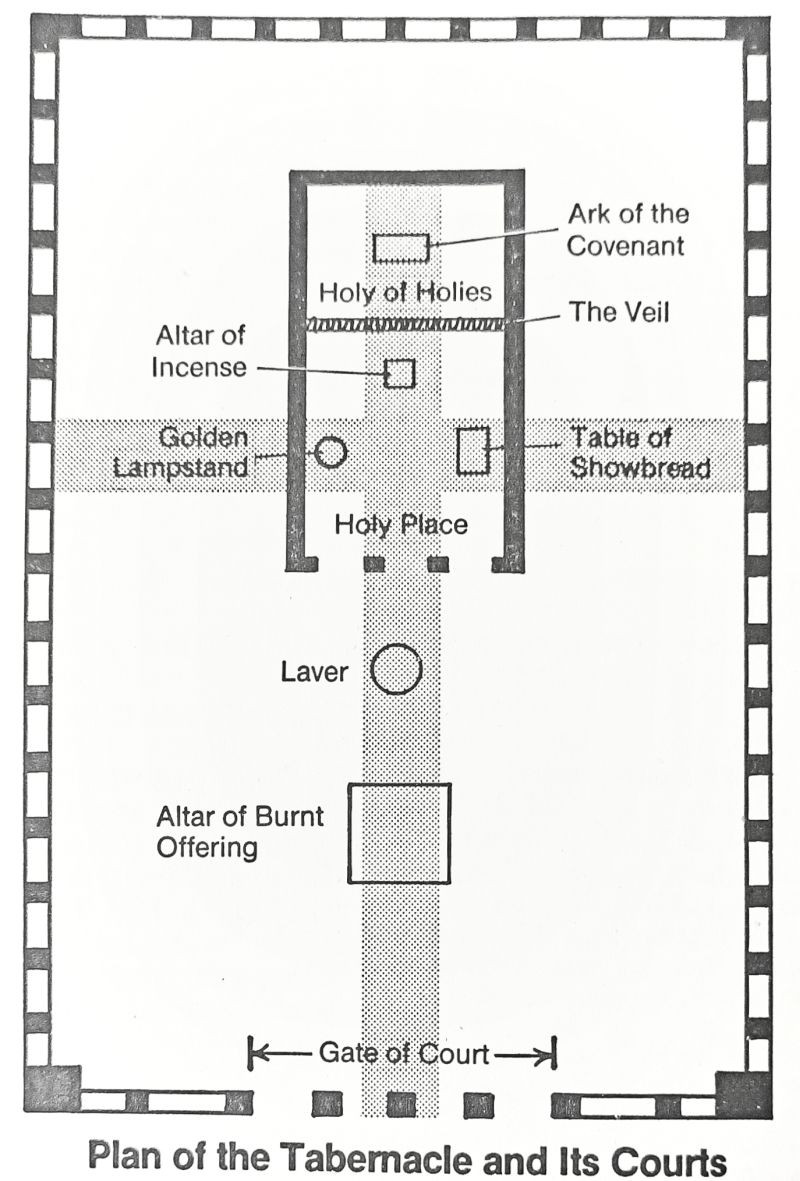Illustration: The Tabernacle of the Old Testament and the Cross of Christ.

Selie Visa
1) A great human priest (1-10)
Melchizedek is a historical person mentioned in Genesis 14. Abraham was returning home after a successful war campaign. Melchizedek, the king of Salem (afterward known as Jerusalem) and also a priest of God, brought bread and wine and blessed Abraham, telling him that he owed his military victory to God. Abraham also gave Melchizedek a tenth of the properties he captured during the war.
"Without father without mother..." means Melchizedek had no recorded father or mother or genealogy. This does not make him a man of mystery or a divine person. He was a man and greater than Abraham. The priest-king Melchizedek is a picture or a type of the Son of God, Jesus Christ, who is a divine being.
Melchizedek appears in the stage of history as without father or mother or genealogy because no record is known to us.
For 1,500 years the Israelites had looked for their high priest, the descendants of Aaron, to represent them before God and offer sacrifices for their sins. It was really important for the Hebrews to know that Christ was a priest superior to the Aaronic priests.
The greatness of Melchizedek:
1. He received tithes from Abraham, many years before the levitical priesthood was instituted.
2. He blessed Abraham. The giver of blessing is considered greater than the recipient.
3. He lives on, not literally but as a type or a picture.
4. Even Levi, great grandson of Abraham paid tithes to Melchizedek.
Melchizedek was both a king and a priest. Jesus Christ is both King and Priest. His blessings come to those who worship him as their King.
Melchizedek means king of righteousness. Salem means peace. He was known as king of righteousness and king of peace in his country. Our Lord Jesus is both King of righteousness and King of peace.
2. A limited levitical priesthood (11-14)
The two great priests of the Old Testament are Melchizedek and Aaron. Both these men are types of Christ. Christ is of the order of MelchizedEk and performs his office after the pattern of Aaron. The Law given by God demanded perfection and holiness. The priesthood cannot produce this. Jesus has accomplished what the Law could not do.
3. The perfect Eternal Priest (15-19)
The shortcomings of the Levitical ministry were its weakness and uselessness, though it was necessary. It made nothing perfect. In the priesthood of Christ, we find the power of an indestructible life, a priest forever, a better hope, and we draw near to God. The Levitical priesthood cannot produce a perfect state nor accomplish all that was necessary for sinners. The priesthood of Christ is infinitely greater and superior.
4. A better covenant (20-28)
The priesthood of Christ was established by an oath of God. The priesthood of Judaism was received through descendants.
Aaronic priests died and there was a constant change from one priest to another. The priesthood of Christ is forever and permanent.
The ministry of Jesus is continuously transforming sinners and bringing them near to God. Being holy and undefiled, Jesus is infinitely greater than all other priests.
Our supreme need is a priest who can deal with sin and stand for us before God. We have what we need in Christ, for God himself appointed his perfect Son to be our High Priest forever.
5. The Priesthood of Christ and the ultimate sacrifice:
How has Jesus Christ, a shadow in the Old Testament, become a substance in the New Testament? How has he fulfilled the role of the “greater priest”? It is by his incarnation. He took on flesh and pitched his tent amongst mankind. In the flesh he remains completely, God and entirely man. He became our divine priesthood. The sacrifice he offered for the atonement of the sin of the world was not the old animal sacrifice. He offered Himself as the sacrificial lamb by dying on the cross. As one without sin, he fulfilled every requirement of the sacrifice for sin once and for all time.




